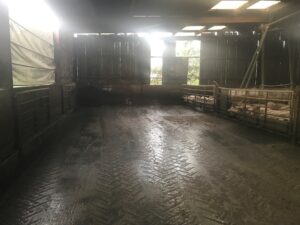Oil company fined following liquid petroleum gas leak
The operator of the UK’s largest oil refinery has been fined for health and safety breaches after a leak of liquid petroleum gas (LPG) was discovered by a worker cycling home at the end of their shift.
Southampton Magistrates’ Court heard how, on 15 November 2015, there was an uncontrolled release of around 15 tonnes of LPG through a valve near to the main roadway used by LPG road tankers visiting Esso Petroleum Company’s refinery in Fawley, Hampshire.
The leak went undetected for around four hours before being discovered by an employee on his way home. It took a further hour to establish the source of the leak with on-site emergency personnel having to enter the area to reset the valve.
An investigation by the Health and Safety Executive (HSE) found that the leak occurred because LPG was put through the pipe work at too a high a pressure for the valve, there was no process in place to detect the discrepancy in the flow in the pipe and that the company had failed to take all measures necessary to prevent a major accident.
Esso Petroleum Company Limited pleaded guilty to breaching Regulation 5(1) of The Control of Major Accident Hazards Regulations (COMAH) 2015 and was fined £500,000.
After the hearing, HSE inspector, Jonathan Halewood commented:
“The measures required to prevent accidents should be proportionate to the risks. Where companies handle large quantities of substances that can cause major accidents, such as LPG, they are required to have layers of protection in place to prevent accidents.
“In this incident a number of those layers either failed or were not in place resulting in a significant leak. Even though there was no fire or injury on this occasion, there was potential for a major accident. The prosecution has been brought to highlight the importance of maintaining the layers of protection and preventing this kind of major leak.”
Notes to Editors
- The Health and Safety Executive (HSE) is Britain’s national regulator for workplace health and safety. We prevent work-related death, injury and ill health through regulatory actions that range from influencing behaviours across whole industry sectors through to targeted interventions on individual businesses. These activities are supported by globally recognised scientific expertise. hse.gov.uk
- More about the legislation referred to in this case can be found at: HSE: LPG safety resources
- HSE news releases are available at http://press.hse.gov.uk
